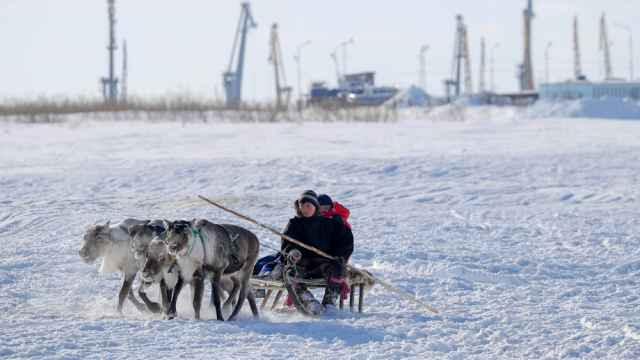A Russian court on Tuesday committed to a mental asylum a Siberian shaman critical of Vladimir Putin, a move rights groups condemned as a repressive move to silence a dissenter.
Alexander Gabyshev, a self-styled shaman from Yakutsk, northern Siberia, last year set out to walk from his home to the Kremlin to "banish" the Russian president.
He dragged a cart with his belongings along highways, gathering a small following and meeting supporters in cities he passed. The journey from Yakutsk to Moscow is over 8,000 kilometers (5,000 miles).
Police stopped Gabyshev's first trek several months in and prevented a second one he began in December. Then after he announced his third attempt, he was detained in his home and placed in a mental asylum last month.
A court in Yakutsk on Tuesday ruled to extend his forced committal there, with no end date indicated, according to a human rights group following the case.
Alexei Pryanishnikov, coordinator for the Open Russia rights project, said case documents did not describe the shaman's health, merely saying he "overestimates himself" by wishing to "depose Putin."
Supporters of Gabyshev had been detained on their way to give testimony Tuesday, the group added.
Amnesty International called for his release in a statement, arguing that the decision to have him committed had been based on his political rather than medical grounds.
Gabyshev "has been made an enemy of the state solely for voicing his dislike of Putin," said Amnesty.
Committing political dissenters to psychiatric hospitals was a practice known as punitive psychiatry in the days of the Soviet Union. Up to the late 1980s, critics could be diagnosed with "sluggish schizophrenia" or forms of paranoia and locked up in institutions.
Alexander Gabyshev has gained many fans in his native Yakutia, and local officials have expressed unease over his case. The popular mayor of Yakutsk, Sardana Avksentyeva called his detention "selective punishment."
She wrote on social media that she was worried "anyone can be sent to forced treatment with the formula of 'overestimating oneself.'"
A Message from The Moscow Times:
Dear readers,
We are facing unprecedented challenges. Russia's Prosecutor General's Office has designated The Moscow Times as an "undesirable" organization, criminalizing our work and putting our staff at risk of prosecution. This follows our earlier unjust labeling as a "foreign agent."
These actions are direct attempts to silence independent journalism in Russia. The authorities claim our work "discredits the decisions of the Russian leadership." We see things differently: we strive to provide accurate, unbiased reporting on Russia.
We, the journalists of The Moscow Times, refuse to be silenced. But to continue our work, we need your help.
Your support, no matter how small, makes a world of difference. If you can, please support us monthly starting from just $2. It's quick to set up, and every contribution makes a significant impact.
By supporting The Moscow Times, you're defending open, independent journalism in the face of repression. Thank you for standing with us.
Remind me later.






